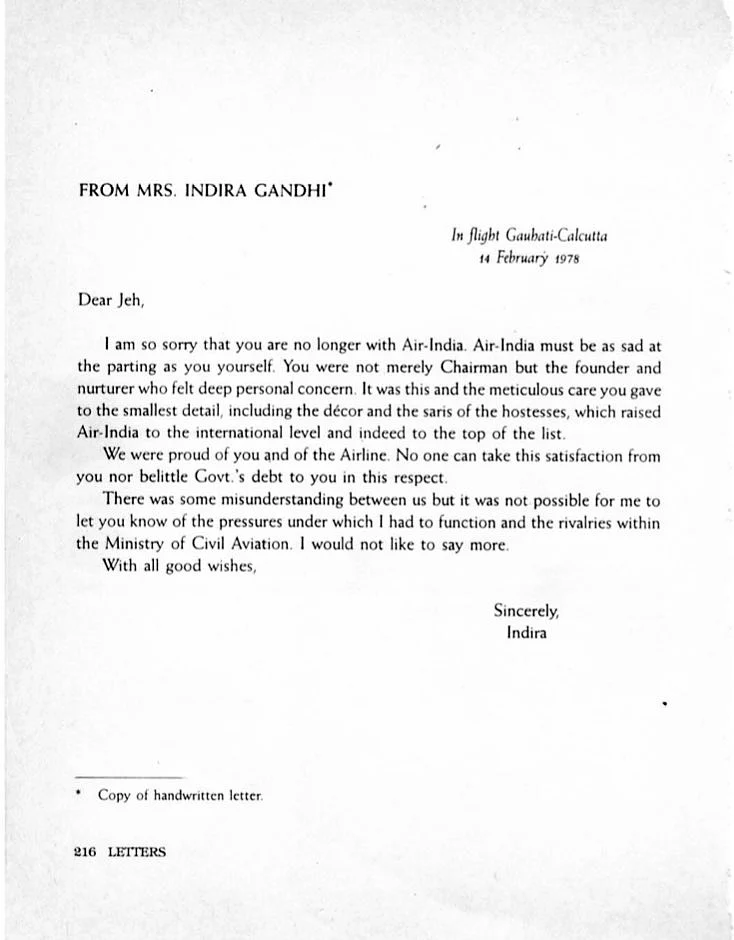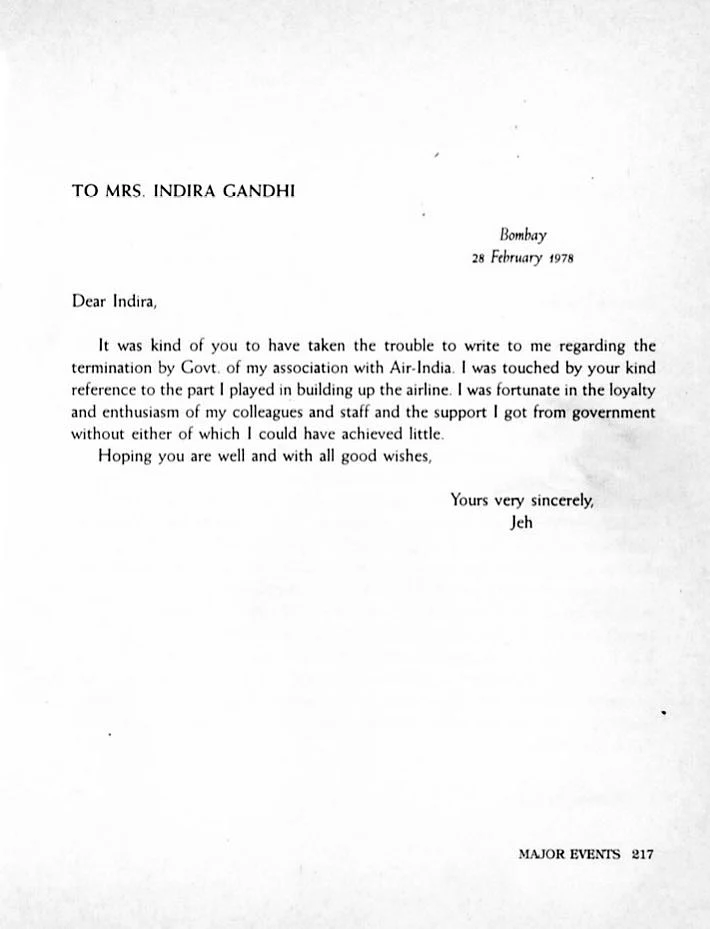Nationalisation of Air India was in the country’s interest at that time
Decision to nationalise Air India and 8 other airlines in 1953 was not taken by Nehru alone but after the then Cabinet and later the Parliament thought it was necessary to do so in national interest

The allegations that have been levelled against Nehru since the speculation of award of the bid to purchase Air India in favour of the Tatas are false as well as unwarranted. It is unfortunate that things related to the decision to nationalise civil aviation by the Nehru government have been presented by a section of the media in misleading titles and headlines and no attempt has been made to present relevant facts or to argue them out.
The decision to nationalise Air India and eight other airlines in 1953 was not taken out of the blue by Nehru alone but after the then Cabinet and later the Parliament in their collective wisdom thought it was necessary to do so in national interest.
The Air Transport Inquiry Committee set up by the Ministry of Communications in its report submitted to the Government in 1950 had examined the details of each Airlines and reasoned that a unified structure under the Central Government was the best option to maintain the viability of civil aviation in India.
In para 188 of the Inquiry Report the Committee observed : " If air transport operations in India were unified under one management, the cost of operations would be reduced by 8.5 per cent due to(a) reduction of costs under the items servicing, overhaul, administration, office rents, costs on training, accounts and audit, passenger services and traffic sales and agencies; and (b) reduction in costs consequent on increased utilisation which would be possible as there would be full freedom to develop operational route plans for the airline network as a whole." (Page 94).
Accordingly, the Committee recommend the formation of a Statutory Corporation that brought Air India and the other Airlines under government control.
The decision to nationalise Air India and other airlines was also in line with the international conditions prevailing at that time in civil aviation worldwide that the Inquiry Committee took into account. It happened that in those days, major Airlines across the world, notably, British Airways, then known as British Overseas Airways Corporation, Air France, Lufthansa, and Swiss Air were all Government owned. If Airlines were not sustainable as private entity in advanced countries like Britain and France, these were far less likely to be so in a newly independent country like India where commerce and industry were yet to develop. Even the Tatas would not have been able to sustain the Airline.
It seems to me that leaving Air India into private hands could have led to creation of monopoly interests which were incompatible with the concept of a welfare state Nehru wanted India to become. This was not an unworthy objective.
J.R.D. Tata had most amicable, almost personal relationship with Nehru and Indira Gandhi till the end. This is evident from the fact that he was retained as Chairman of Air India during the regime of both Nehru and Indira for twenty- five years after nationalisation of the Company. While Indira addressed JRD in her personal communication by his first name as "Jeh", JRD has himself mentioned that Nehru liked him and would invite him for a dinner and he in turn loved and admired him. Incidentally, it was Desai government, backed by the predecessor of the BJP, the Jan Sangh that dismissed JRD as Chairman of Air India!
The claim that their relationship soured with nationalisation of Air India is absolutely false. Those who say JRD had told that 'my friend Nehru stabbed me in my back. I can only deplore that so vital a step was taken without giving us proper hearing' do not understand the meaning of gentlemanly behaviour that was common to both Nehru and JRD. (opindia.com, 09 October, 2021) JRD could never use these words.
Another news website, Janasatta- on-line headlined a Hindi write -up with these words: Indira Gandhi ne khat likh kar maangi thi JRD Tata se maafi, jaane kya tha kaaran. (Indira Gandhi apologized to JRD Tata in a letter. Know the reason., janasatta. come, 09October 2021) This is a clear misrepresentation of Indira Gandhi's actual letter to JRD, written on 14 February 1978 after his removal as chairman of Air India by Desai government which has been quoted by Jairam Ramesh on his Twitter account. The exact words used by Indira are: 'Dear Jeh, I am so sorry you are no longer with Air India. Air India must be as sad at the parting as you yourself'. Now, the phrase, 'I am so sorry', here does not mean, 'I apologize'. It means ' I am sad to learn'. Whether it is ignorance of the English grammar on the part of the sub-editor or a deliberate misrepresentation of facts, it is unfortunate.
It is only small men who think difference of opinion with someone constitutes souring of relationship, not great individuals like Nehru and JRD. JRD, being a businessman might have naturally favoured private enterprise. Nehru as Prime Minister thought otherwise. There was no ill-will between them.


Follow us on: Facebook, Twitter, Google News, Instagram
Join our official telegram channel (@nationalherald) and stay updated with the latest headlines
Published: 13 Oct 2021, 2:13 PM